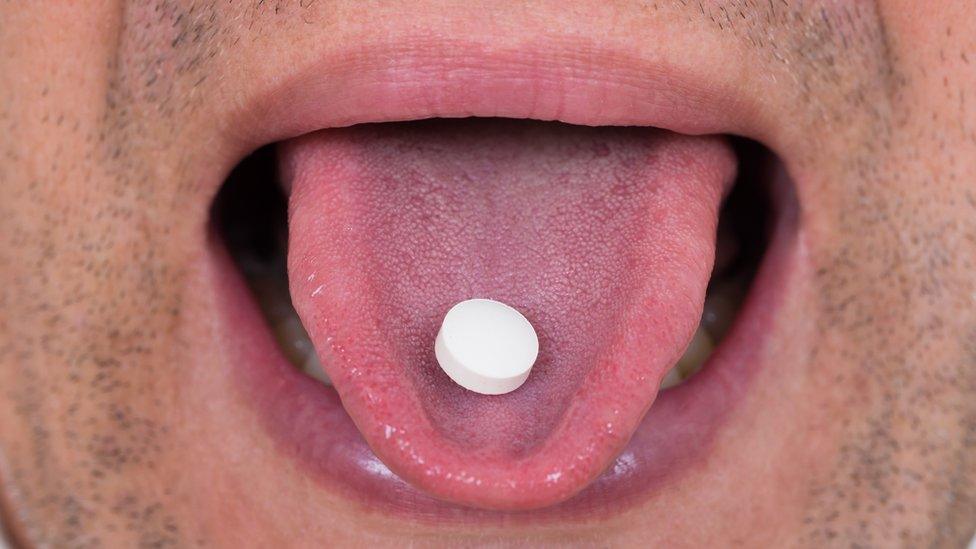Anti-psychotic drug blamed for shopping addiction
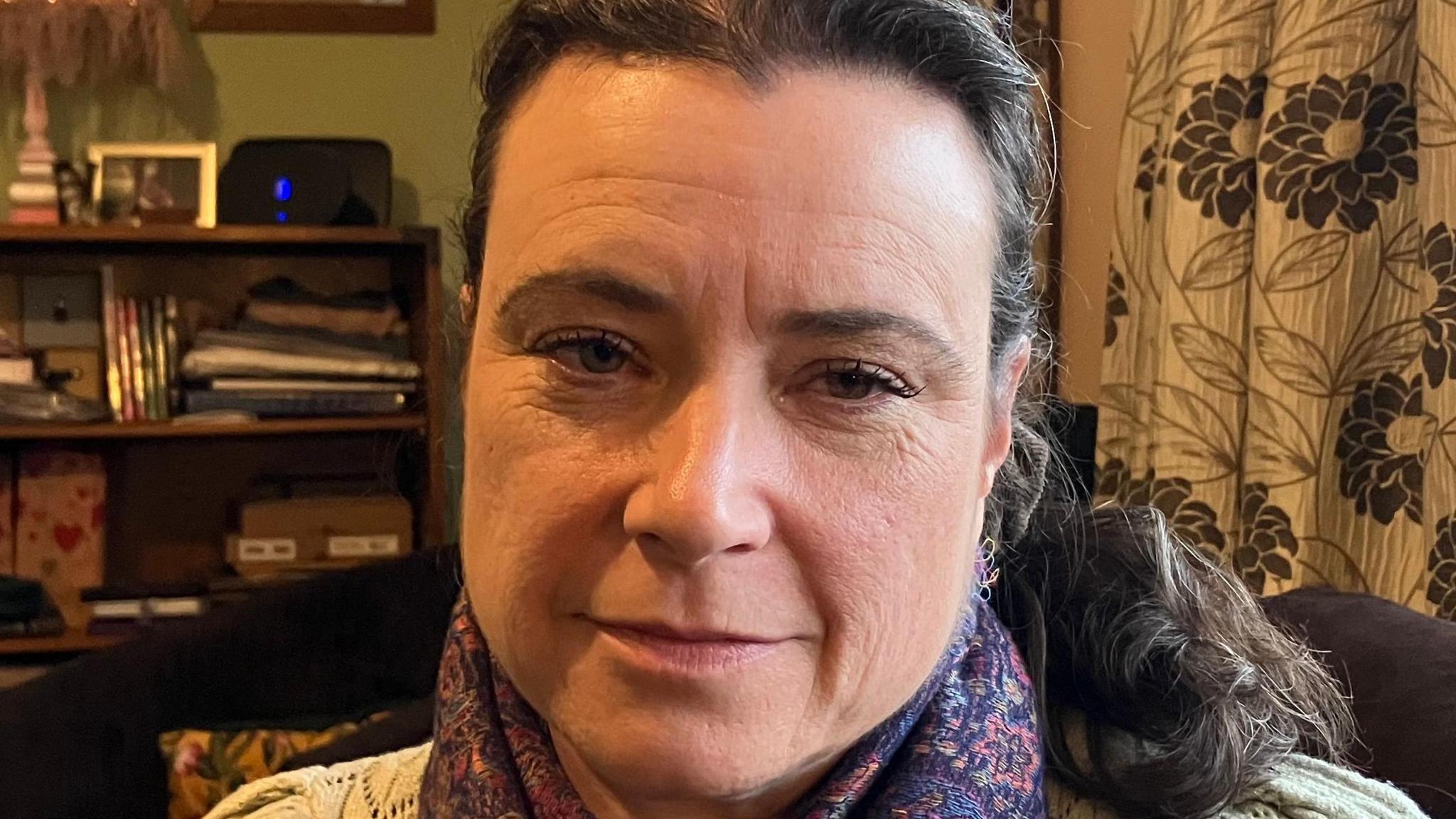
Abbi Hoxleigh wants others to be aware of the uncommon side effect
- Published
A woman taking a common anti-psychotic drug says its side effects led to her spending £10,000 in two months.
Abbi Hoxleigh, of Warwickshire, claims she developed a shopping addiction after being prescribed aripiprazole.
The mental health drug treats conditions including schizophrenia and bipolar disorder, but can drive some people to compulsive behaviour.
Health agencies say impulse control disorders are a very rare but well recognised side effect of the drug.
Shortly after being contacted by the BBC, the Medicines and Healthcare products Regulatory Agency (MHRA) issued renewed guidance warning about aripiprazole, external and the risks of pathological gambling and other impulse control disorders.
Ms Hoxleigh, who has post traumatic stress disorder, said she had decided to speak out because she wanted to raise awareness of the uncommon reaction.
She has lived with mental health problems for more than three decades.
The company director started a PR firm during the pandemic and said she had gone through a particularly difficult period this summer.
Her mother died of Covid in 2020 and she has been experiencing work-related stress.
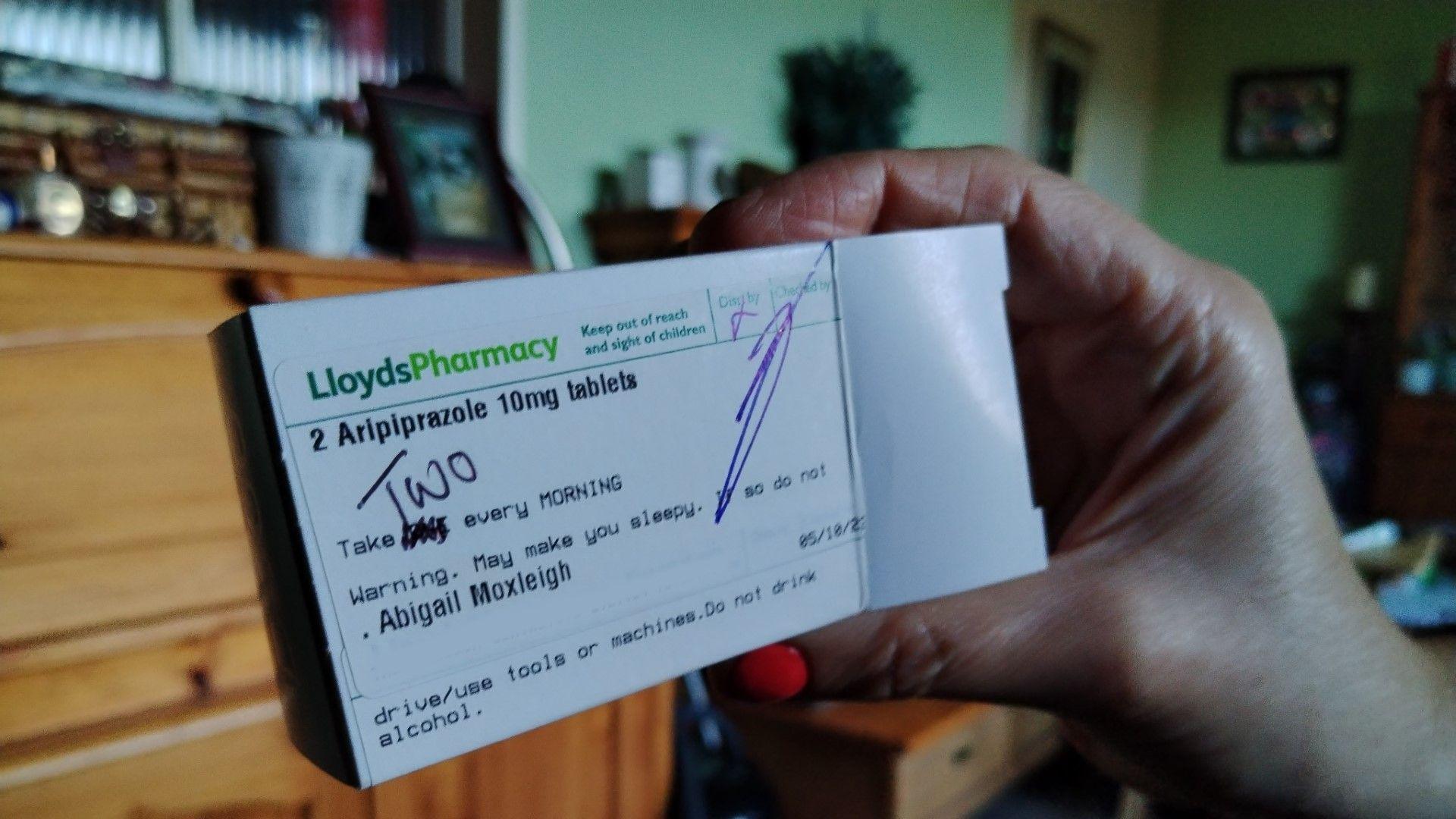
She was prescribed aripiprazole, a common anti-psychotic
The 51-year-old, from Rugby, was prescribed aripiprazole in September and said she had quickly experienced an uncomfortable reaction, including a lack of sensation in her limbs and muscles.
She later found herself becoming a compulsive shopper and spent thousands on clothes, furniture and supermarket goods.
“I would go out of my way to get to the supermarket on two buses or walk when usually my food is delivered,” she said.
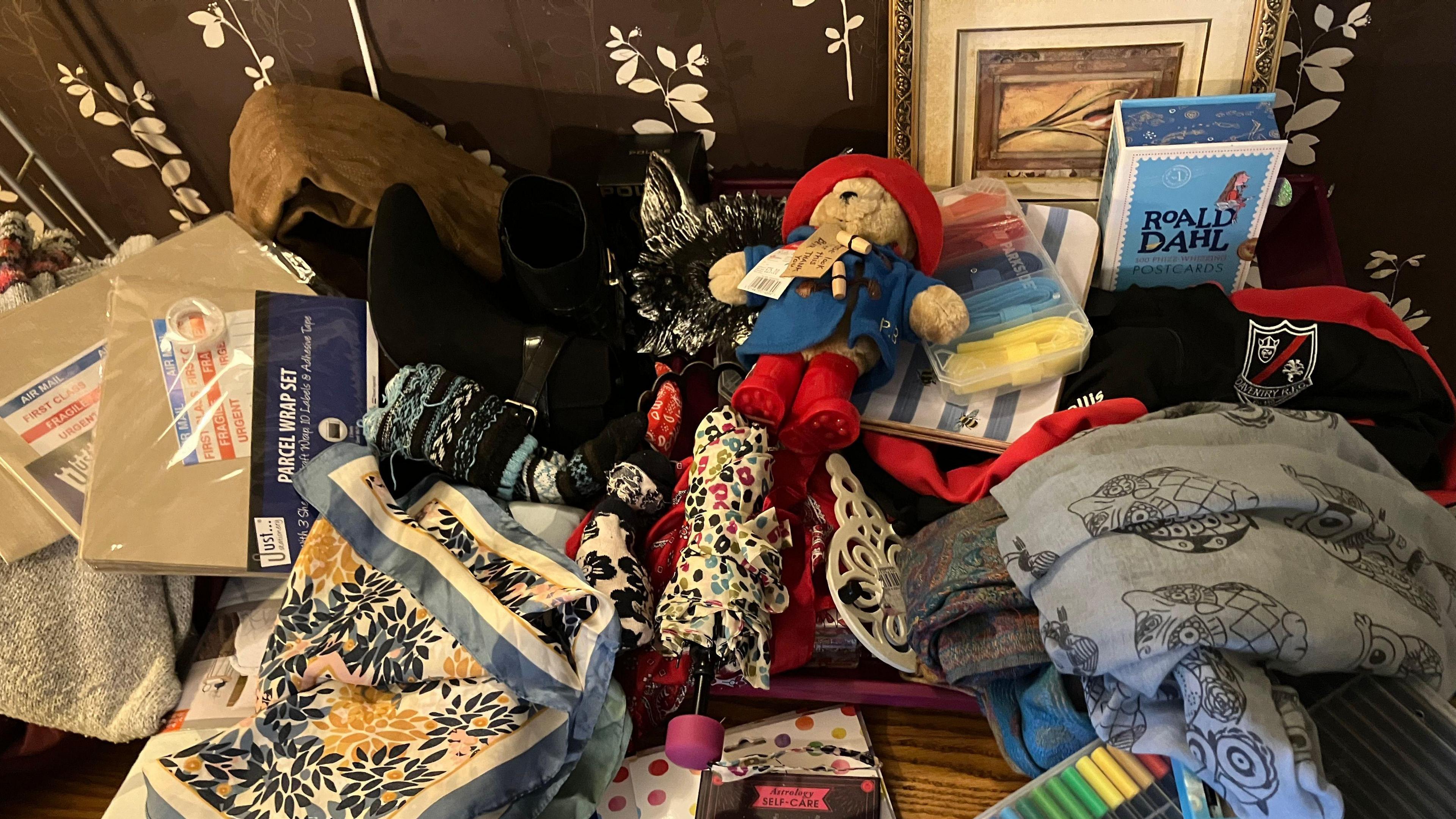
She found herself becoming a compulsive shopper, purchasing items she did not need
Alison Cave, the MHRA's chief safety officer, said aripiprazole was an important medication but advised patients to tell their doctor about unusual urges they could not resist.
These include behaviours such as addictive gambling, excessive eating or spending or an abnormally high sex drive, Ms Cave explained.
"The number of reports for suspected gambling and other impulsive behaviours associated with aripiprazole are small in comparison to the frequency with which it is prescribed," she said.
"But the consequences for any patient developing these conditions can be significant."
Prof Henrietta Bowden-Jones, director of the National Problem Gambling Clinic, added: "Clinicians prescribing aripiprazole must commit to consistently alerting patients about these potential risks."
The Royal College of Psychiatrists said it was aware of renewed advice to professionals and a spokesperson urged people to speak with their doctor before abruptly coming off medication.
From 30 June 2009 to 28 August 2023, the MHRA received 69 reports citing aripiprazole, which is prescribed more than a million times a year, as a suspect medicine for side effects of gambling or gambling disorder. Thirty-two of these reports were received in 2023.
'Robotic' shopping
Ms Hoxleigh said at the height of her compulsive behaviour, she had spent more than £600 at supermarkets in one day.
She showed the BBC receipts she had retained in case she was suspected of shoplifting.
The £10,000 total included a spend of £5,000 when she was on aripiprazole and £5,000 as she dealt with shopping addiction coming off the drug in October.
“A friend said that when they bumped into me in the supermarket I grabbed items almost robotically,” Ms Hoxleigh added.
"It's really hard to see I had no control and just fluttered from one shop to another."
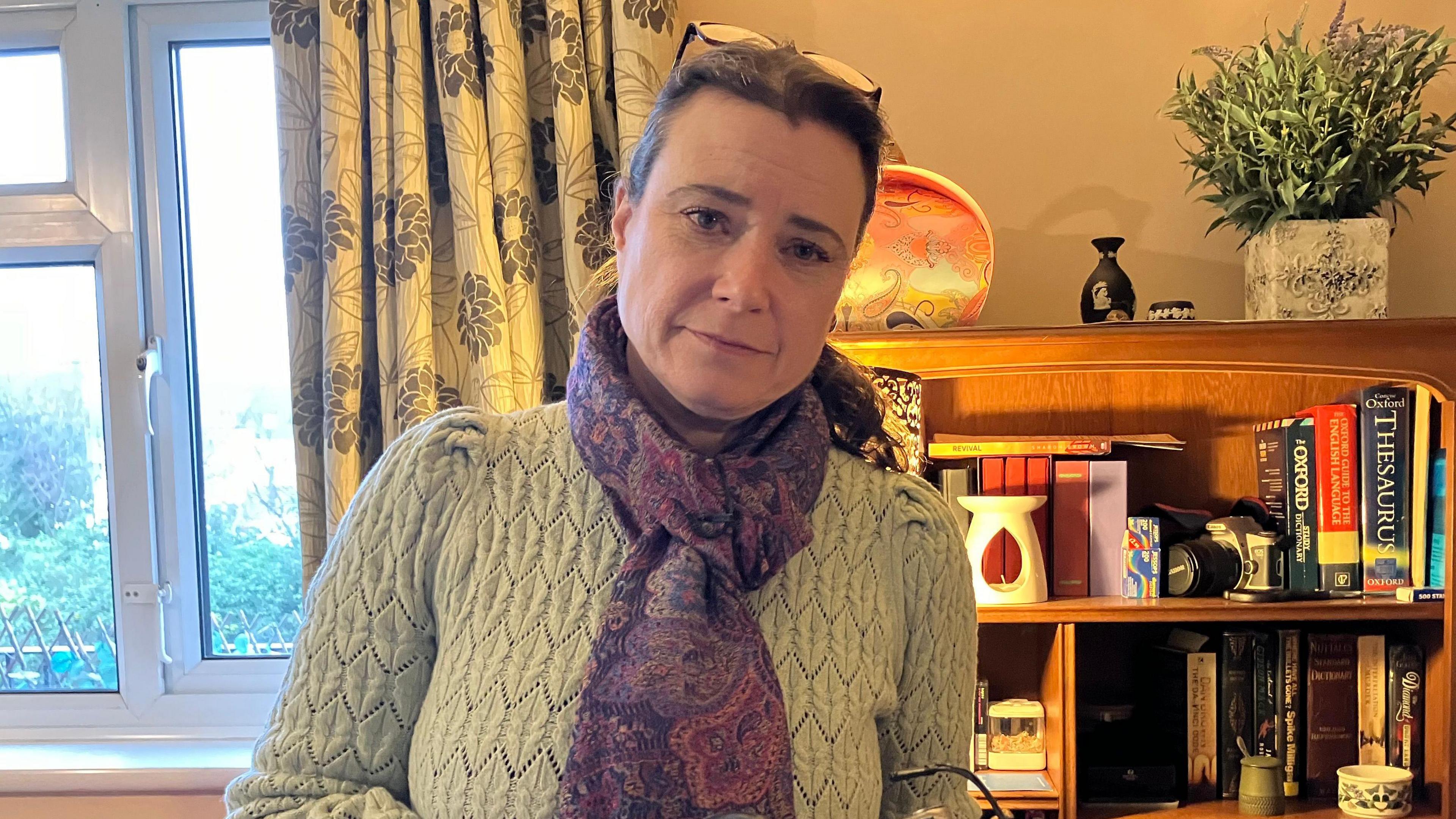
Ms Hoxleigh thanked her family for supporting her
Ms Hoxleigh, an ex-community mental health worker, was able to afford the shopping but said she feared for young people and those without the financial resources to deal with compulsion.
The spending ate into her savings and she said it had forced her to put off plans to move house.
But she stressed her family had remained supportive throughout.
"I'm not ashamed but it's difficult to understand how you can feel like that," Ms Hoxleigh added.
She welcomed the renewed advice given to medical professionals and urged patients to report their side effects through the MHRA’s Yellow Card scheme, , externalwhich collects and monitors information on suspected safety concerns involving healthcare products.
Follow BBC West Midlands on Facebook, external, X,, external and Instagram, external, Send your story ideas to: newsonline.westmidlands@bbc.co.uk
Related topics
- Published31 August 2022

- Published14 November 2017
